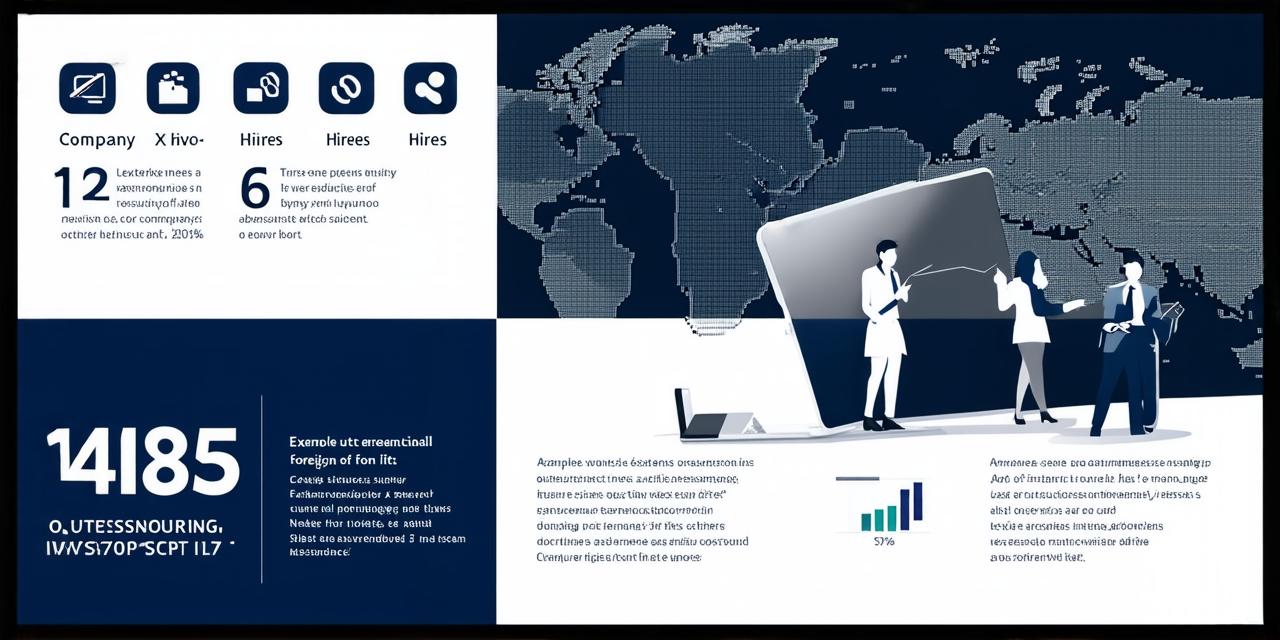Outsourcing refers to the practice of hiring a third-party provider or contractor to perform certain tasks for a business. This can include anything from administrative tasks such as data entry and customer service, to more specialized functions such as software development and marketing.

Why do businesses outsource tasks?
There are several reasons why businesses may choose to outsource tasks:
- Cost savings: One of the primary reasons for outsourcing is cost savings. By hiring a third-party provider, businesses can often save money on labor and overhead costs, as they do not have to hire or maintain an in-house workforce.
2. Access to specialized expertise: Outsourcing also allows businesses to gain access to specialized expertise that may not be available in-house. For example, a small business may not have the resources to develop custom software, but they can hire a software development firm to create a solution for them.
3. Increased efficiency: Outsourcing certain tasks can help businesses become more efficient by freeing up their internal team to focus on core activities that are critical to the success of the business.
4. Improved quality control: Some outsourcing providers specialize in specific areas, such as marketing or customer service, and may have more rigorous quality control processes in place than a business’s internal team. This can help businesses achieve higher levels of quality for certain tasks.
5. Scalability: Outsourcing can also be beneficial in terms of scalability. For example, during periods of high demand, a business can quickly scale up their operations by hiring additional outsourcing providers, rather than hiring and training new employees.
What are some common types of outsourcing?
There are many different types of outsourcing, including:
- Offshore outsourcing: This is when a business hires a provider located in another country, often to take advantage of lower labor costs.
2. Nearshore outsourcing: This is similar to offshore outsourcing, but the provider is located in a neighboring country or region with similar time zones and cultural norms.
3. Onshore outsourcing: This is when a business hires a provider located within their own country, often to take advantage of local expertise and knowledge.
4. Functional outsourcing: This is when a business outsources a specific function, such as marketing or customer service, to a specialist provider.
5. Project-based outsourcing: This is when a business hires a provider to work on a specific project, rather than providing ongoing support or services.
6. Outsourcing of back office functions: This includes tasks such as data entry, bookkeeping and accounting, payroll, and other administrative tasks that are often outsourced to reduce costs and improve efficiency.
